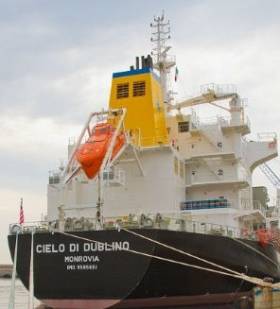Displaying items by tag: Green Shipowner of the Year 2016
d’Amico Group is 'Green Shipowner of the Year 2016'
#GreenAward - The d'Amico Group, the Italian maritime transport company has won the "Green Shipowner of the Year" 2016 for commitment in implementing on its fleet a system able to reduce the environmental impact and constantly monitor the performance of energy consumption. The company's dry-cargo subsidiary, d'Amico Dry domiciled in Dublin, operates a range of modern tonnage.
advanced sensors on board, which allow to track consumption and performance in real time, led to a deeper responsibility assignment of the crew on environmental issues”, stated Domenico Savio Taiano, HSQE Director of d'Amico Group. Besides these engineering solutions, which already allow considerable reduction of fuel consumption and emissions (CO2, SOx and NOX), d’Amico Group established a Performance Monitoring Department, standing out among the first shipowner companies, specialized in transporting dry and liquid bulk cargos, able to create a department focused on monitoring the whole fleet performance exclusively.
The jury that selected the projects comprised Craig Eason (Deputy Editor, Lloyd's List), George Papagiannopoulos (Common Progress), Lars Robert Pedersen (COO, BIMCO), Mark Cameron (COO, Ardmore Shipping), Hanna Lee Behrens (Norwegian Shipowners' Association). d’Amico Group has always settled among its “core values” a strong commitment to the environment. The environmental policy and the plans on sustainable development are, and will still be, important pillars of the strategy of the Group.





























































